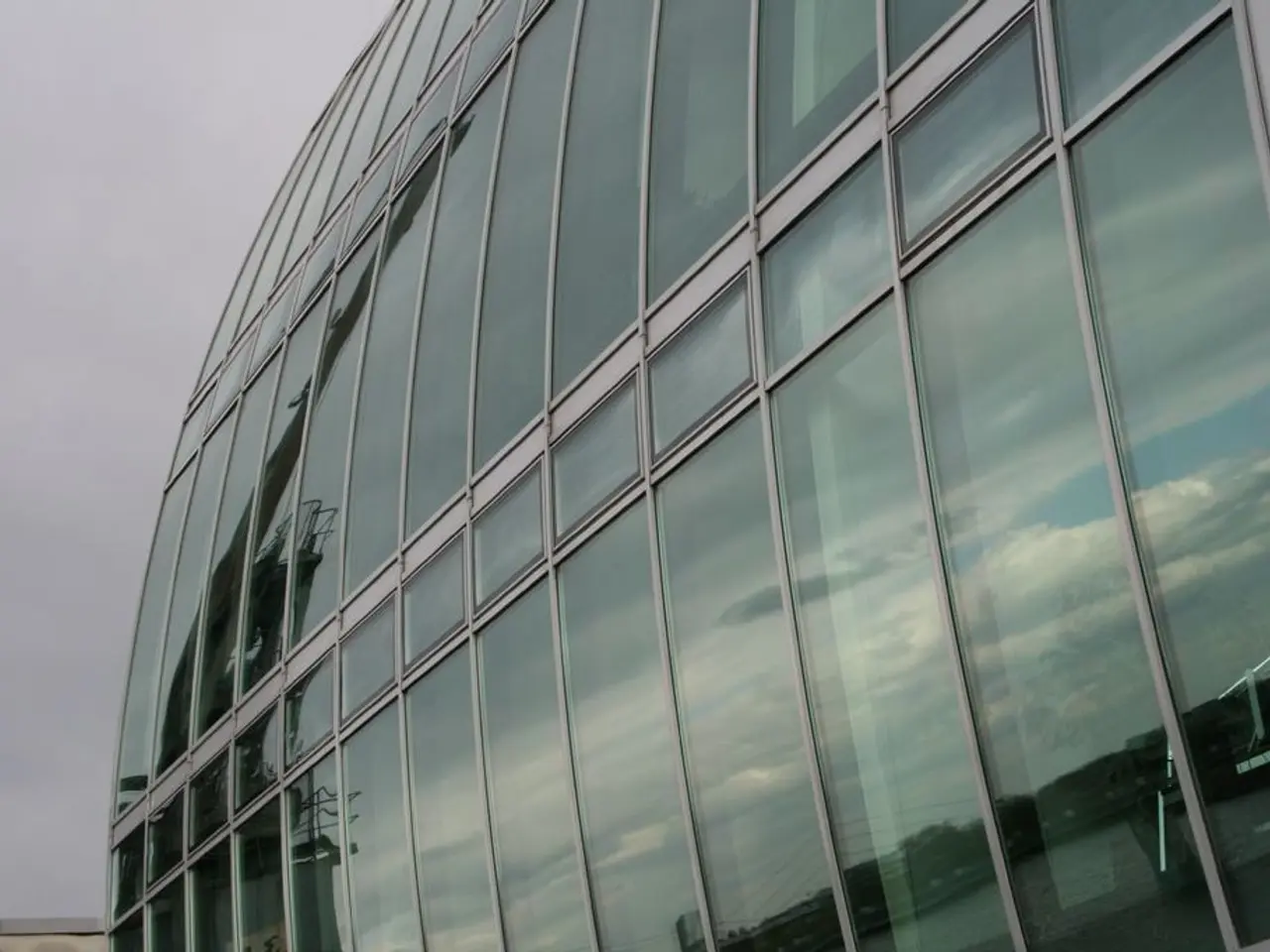Offices in London experiencing resurgence as transaction volume increases and top rents rise notably
================================================================================
In a significant turn of events, London's office market is experiencing a resurgence, with the insurance and financial sectors driving the growth. According to Philip Pearce, director of Savills' London team, businesses across the city are growing their headcounts, leading to increased demand for office space.
The insurance and financial sector has been the primary driver of leasing activity, rising 34% above its long-term average. This surge is primarily due to a resurgence of large office leasing deals, with major financial firms committing to substantial office space. For instance, Squarepoint Capital's lease of 400,000 sq ft at J.P. Morgan Asset Management’s redevelopment of 65 Gresham Street exemplifies this trend.
The demand for high-quality, flexible workspace has increased, driven by a need for agility and cost optimization in a less predictable economic environment. Businesses in these sectors are emphasizing flexibility to de-risk long-term space commitments amid inflation and market uncertainty, increasing demand for adaptable, refurbished spaces.
The City's office market is projected for solid growth, with expected annual average rental growth of 5.8% in the City Core area through 2029. This growth is attracting insurance and financial companies investing in high-quality office environments. The trend of significant office leasing in core financial districts like the City of London and Canary Wharf signals confidence in London as a key global finance hub despite broader economic challenges.
The second quarter of 2025 saw a boost in activity, with leasings up 18% year on year. The office take-up for the first half of the year reached 4.8m sq ft, which is a 4% increase compared to the long-term average. Ed Bradley, head of central London investment at CBRE, stated that the office investment market is regaining its footing in London after a "lengthy recovery period following the pandemic".
Investor momentum has been building, particularly from overseas investors. James Nicholson, head of London deals at CBRE, said that the figures highlight the sustained confidence among businesses in the physical value of office space, accessibility to talent, and the necessity for global companies to have a dedicated office in London.
Savills' research suggests renewed confidence in larger deals, with the volume of transactions over 50,000 sq ft being the highest since the first half of 2019, and the number of deals over 100,000 sq ft at its highest level since 2017. There was strong demand from hedge funds, international banks, and asset management firms.
In conclusion, the driving factors for the increased office market activity in London in 2025 are a return of large-scale leasing deals by financial and insurance companies, strong demand for new or extensively refurbished “best-in-class” office space, increased emphasis on flexibility and cost optimization in leasing decisions amid economic uncertainty, and positive rental growth expectations in key financial districts enhancing investment appeal. These elements collectively stimulate heightened office market activity for the insurance and financial sectors in London in 2025.
[1] Knight Frank (2025) [2] JLL (2025) [3] Cushman & Wakefield (2025) [4] Knight Frank (2025) [5] Knight Frank, CBRE (2025)
- The resurgence of London's office market in 2025 is not only observed in the insurance and financial sectors but also extends to the real-estate and business sectors, as demonstrated by the increased demand for office space.
- The surge in leasing activity in London's office market is not only confined to large office leasing deals by major financial firms, but also includes smaller deals from hedge funds, international banks, and asset management firms, indicating a broader trend of investing in office space.
- The trend of renewed confidence in large-scale office deals is not limited to Savills' observations, as Knight Frank's research also suggests a significant increase in the volume of transactions over 50,000 sq ft.
- The demand for high-quality, flexible workspace is not only driven by the need for agility but also by the necessity for global companies to have a dedicated office in London, as indicated by the sustained confidence among businesses in the physical value of office space and accessibility to talent.




